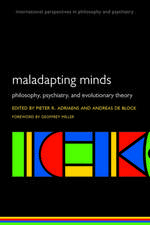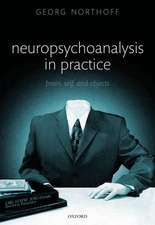Feeling Good: The Science of Well-Being
Autor C. Robert Cloningeren Limba Engleză Hardback – 27 mai 2004
Preț: 424.60 lei
Preț vechi: 578.92 lei
-27% Nou
Puncte Express: 637
Preț estimativ în valută:
81.27€ • 84.52$ • 68.10£
81.27€ • 84.52$ • 68.10£
Carte tipărită la comandă
Livrare economică 03-08 martie
Preluare comenzi: 021 569.72.76
Specificații
ISBN-13: 9780195051377
ISBN-10: 0195051378
Pagini: 400
Ilustrații: numerous figures and tables
Dimensiuni: 163 x 241 x 28 mm
Greutate: 0.7 kg
Editura: Oxford University Press
Colecția OUP USA
Locul publicării:New York, United States
ISBN-10: 0195051378
Pagini: 400
Ilustrații: numerous figures and tables
Dimensiuni: 163 x 241 x 28 mm
Greutate: 0.7 kg
Editura: Oxford University Press
Colecția OUP USA
Locul publicării:New York, United States
Recenzii
Cloninger, a distinguished US psychiatrist, starts this book with the question, 'why is it so difficult to be happy'? He is critical of conventional scientific psychiatry's approach to the answer to this question, and throughout the book invokes concepts which science finds it difficult to grapple with - like 'coherence'. He ranges with profound insight widely over philosophy and history plus many other sciences, including mathematics, to take an intelligent stab at the central problems of well-being.
. . . a product of vast erudition . . . radical, comprehensive, audacious, brilliant . . .
. . . a product of vast erudition . . . radical, comprehensive, audacious, brilliant . . .











